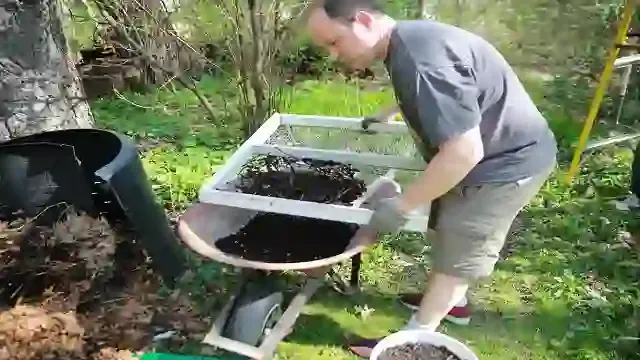Watch the video on YouTube here: https://youtu.be/a7PMaVHelic
Tangla, 27 Apr 2023: Composting is the process of breaking down organic matter into a nutrient-rich soil amendment. It is a natural and sustainable way to recycle food and yard waste into a valuable resource for gardening and agriculture. Composting can help reduce the amount of organic waste that ends up in landfills, where it decomposes anaerobically and releases methane, a potent greenhouse gas that contributes to climate change. By composting, we can divert organic waste from landfills and turn it into a useful product that can improve soil health and support plant growth.
How does composting work?
Composting is a microbial process that involves the breakdown of organic matter by bacteria, fungi, and other microorganisms. These microorganisms consume the organic matter and convert it into humus, a dark, crumbly substance that is rich in nutrients and beneficial for plants. The composting process requires four main components: carbon-rich materials, nitrogen-rich materials, water, and oxygen.
Carbon-rich materials, also known as browns, provide the energy source for microorganisms and include items like dry leaves, straw, and shredded paper. Nitrogen-rich materials, also known as greens, provide a protein source for microorganisms and include items like food scraps, grass clippings, and manure. Water is necessary to keep the compost pile moist and facilitate microbial activity, while oxygen is required for aerobic decomposition to occur.
1
To start a compost pile, you will need to layer carbon-rich and nitrogen-rich materials in a ratio of roughly 2:1. You can also add a handful of soil or finished compost to introduce the microorganisms needed for the composting process. The pile should be kept moist but not waterlogged, and turned or aerated periodically to ensure that oxygen is reaching all parts of the pile. Over time, the microorganisms will break down the organic matter into humus, which can take anywhere from a few months to a year depending on the conditions.
Benefits of composting
Composting has numerous benefits, both for the environment and for gardeners and farmers. Here are a few of the key benefits of composting:
Reducing waste: Composting can help divert organic waste from landfills, where it takes up space and generates methane, a potent greenhouse gas.
Improving soil health: Compost is a natural fertilizer that can improve soil structure, texture, and nutrient content. It also helps retain moisture in the soil, reducing the need for irrigation.
Supporting plant growth: Compost provides essential nutrients for plants and can help improve root development, disease resistance, and overall plant health.
Saving money: Composting can help reduce the need for chemical fertilizers and pesticides, which can be expensive and harmful to the environment.
Reducing water pollution: Composting can help reduce runoff and erosion by improving soil structure and water-holding capacity.
Types of composting
There are several different methods of composting, each with its own advantages and disadvantages. Here are a few of the most common types of composting:
1. Backyard composting: This is the most common form of composting, and involves creating a compost pile or bin in your backyard. Backyard composting is easy and convenient and can be done with minimal equipment.
2. Vermicomposting: Vermicomposting uses worms to break down organic matter into compost. It is ideal for those who live in apartments or have limited outdoor space.
3. Bokashi composting: Bokashi composting uses a special type of microorganism to ferment organic matter. It is a good option for those who want to compost food scraps but don't want to deal with the mess or odors associated with traditional composting.
4. Industrial composting: Industrial composting is a large-scale composting process that is typically used by
What is Composting? Composting is a controlled, aerobic (oxygen-required) process that converts organic materials into a nutrient-rich soil amendment or mulch through natural decomposition. The end product is compost – a dark, crumbly, earthy-smelling material.


Post a Comment
Thanks for messaging us. If you have any doubts. Please let me know.